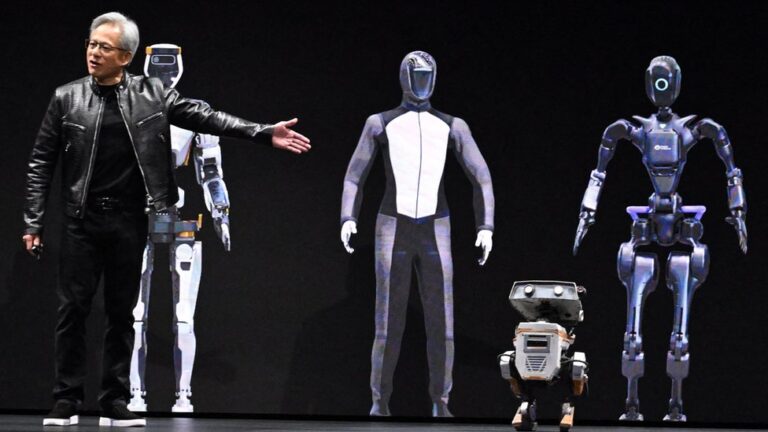Nvidia has announced its latest artificial intelligence (AI) chip that is 30 times faster than the previous generation at some tasks.
The company has 80% market share and hopes to solidify its dominance.
In addition to the B200 “Blackwell” chip, the company's CEO Jensen Huang detailed a series of new software tools at the company's annual developer conference.
Nvidia is the third most valuable company in the United States, behind Microsoft and Apple.
The company's share price has risen 240% over the past year, giving it a market value of $2tn (£1.57tn) last month.
“I want you to understand that this is not a concert,” Huang joked as he began the conference.
But Bob O'Donnell of Technology Research, who was at the event, told the BBC: “There was a lot of buzz.”
“We haven't seen anything like this in the tech industry in a long time,” he said.
“In fact, some people likened it to an early type of presentation by Steve Jobs.”
Nvidia said major customers such as Amazon, Google, Microsoft and OpenAI are expected to use its new flagship chip for cloud computing services and their own AI products.
He also said new software tools called microservices will improve system efficiency and make it easier for companies to incorporate AI models into their operations.
Other announcements include a new line of automotive chips that can run chatbots in your car. The company said both Chinese electric car makers BYD and Xpeng will use its new chip.
Huang also outlined a new set of chips for creating humanoid robots and invited several robots to join him on stage.
Founded in 1993, Nvidia was originally known for making computer chips, especially the type that processes graphics for computer games.
Long before the AI revolution, the company started adding features to its chips that it said would help with machine learning, and those investments have helped it gain market share.
The company is now considered an important company to watch for how quickly AI-powered technologies are permeating the business world.
However, competition from rivals such as AMD and Intel is intensifying.
O'Donnell said the market is growing so quickly that “even if Nvidia loses some share, it can still grow the overall business because there's a lot of opportunity for everyone.” .


